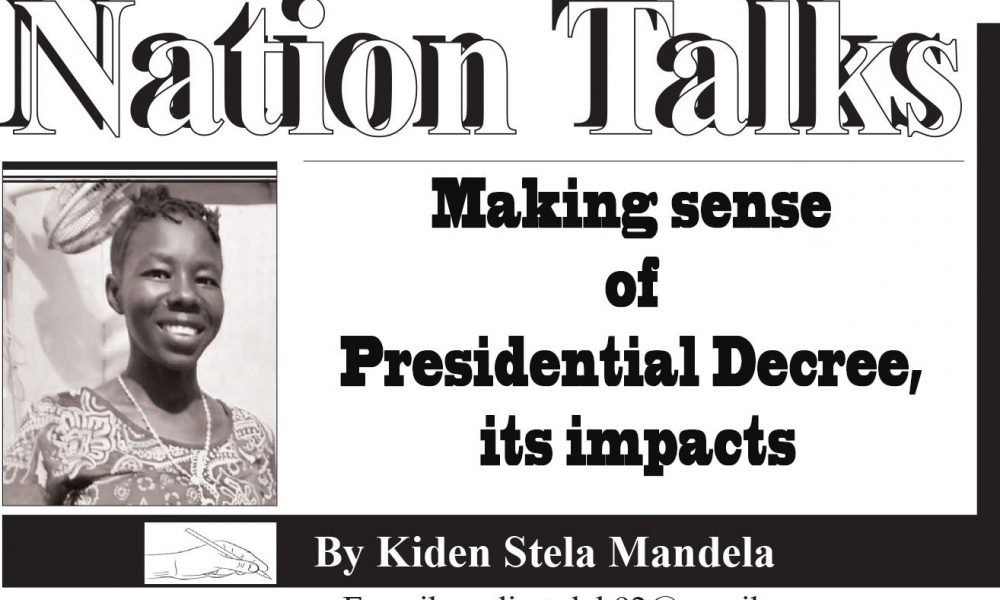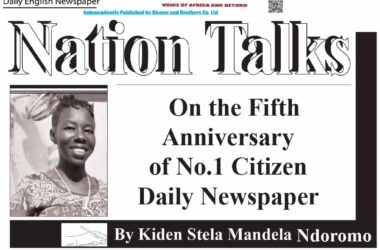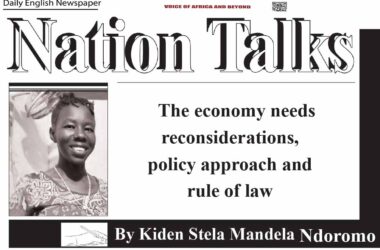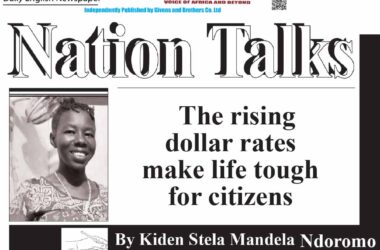By Kiden Stela Mandela
The Transitional Constitution of South Sudan 2011 has vested executive powers to the president as head of state, and the government to appoint and fire or sack top officials within the executive branch.
President Salva Kiir has exercised this power to appoint and remove national ministers, advisors, governors, and other officials in key institutions aligned with the executive branch.
If chronicle, the decrees issued by the president to appoint and remove government officials from positions at the executive can be many times and are continuous.
On Monday, President Kiir decreed out and in, top officials from the Central Bank, National Revenue Authority and Ministry of Finance and Planning. The move is in line with the executive powers bestowed upon him by virtue of the Constitution. As in many occasions, the officials are relieved by the president through the decrees but without references to why they (officials) are being relieved. Whether underperformances, embezzlement of public money, or serious abuses of offices, the citizens have no knowledge or clue about it.
Examining the political terrain of South Sudan, ethnicity is deeply rooted in the politics. And it is being used as a card for playing politics of allegiances or patronages. Barely, when the president appoints anybody from a certain community to a top government position; congratulatory messages flood mainstream media, and social media by the community members of the person appointed.
However, unknowingly, the person assumes that position not to serve his/her community alone where he or she comes from but instead to serve South Sudanese by handling national matters that affect them or the country at large. In such a scenario, the community throws support to their son or daughter appointed.
What appears to be unusual is the recycling of the previously fired officials back to the positions. This invites questions as to why those officials were removed in the first place. And why again bringing them back? These are fundamental questions but without answers.
Digging in, lobbyists are at work every day creeping and cracking the hard wall in order to get through to the appointing authority and influence its decision in their favor. However, this is at the cost of ordinary citizens. The positions of the Minister of Finance, and Central Bank are seen as lucrative by those who want to fulfill their personal interests, including the cliques around them. They use them to access cash from the public treasury.
The presidential decree makes government officials serving in the executive unsettled for fear of being removed. As such, they resort to not delivering well but acquiring wealth faster before being fired. The decree makes them sentry the nation’s television at 8:00 pm, to see what the decree may bring. If one is not fired, the only thing is to smile and wait for the next day. And because of the decree, even if the official is performing well, the moment lobbyists make the breakthrough; he or she can be dethroned from the positions without examining his or her state of performances.
This had created anxieties among the government officials, and inconsistency in presiding over the policies on national issues. As a result, there is poor service delivery. The Ministry of Finance and the Central Bank are at the center of the economy, without good sustained economic and monetary policies for a long period of time; the economy of the country will not grow. The officials serving in these institutions are supposed to work with clear consciences and serve without fear for their policies to bear results which may be immediate but in the long term. But they should be closely scrutinized in this case by the presidency.
The constitution didn’t safeguard the power of the president in the circumstance of appointment and removal of officials from the offices. It is supposed to lay benchmarks to consider before appointing and removing based on some conditions.
God Bless South Sudan
Be right there!




